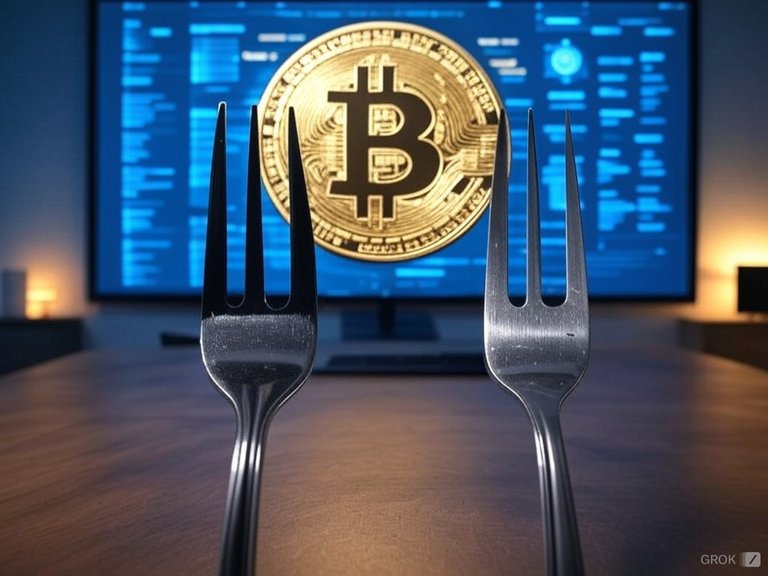Key Takeaways
- DePIN projects often launch with "premines", which allocate a large portion of tokens to founders, investors, and other insiders.
- These initial token allocations could negatively impact decentralization, governance, and token price in the future.
- Founders should consider a more community-focused, merit-based token distribution model, so that the network ends up being owned by dedicated community members, rather than insiders.
- Token burning and hard forks can be used to prevent the harmful affects of uneven initial token allocations.
- Bitcoin, Helium, and Hive offer good examples of how tokens should be distributed to the community.
Our Tokenized Future
Bitcoin laid the foundation for trustless and decentralized payment systems.
Ethereum then innovated upon Bitcoin to make the tokenization of communities a reality.
Helium demonstrated years later how we can use token incentives to more efficiently build out real-world infrastructure, introducing the concept of a decentralized physical infrastructure network (DePIN).
Now we have a multitude of DePIN projects that have already launched, or are in their development stages. These networks could disrupt everything from energy distribution to data centers, and more.
In this article, we talk about the concept of "premines," and discuss how these initial token allocations could harm a project in the long run, and why a community-focused, merit-based token distribution model is better.

Bitcoin Sets The Stage
Guess how much Bitcoin existed when it launched in 2009?
Zero.
That's right. Even Satoshi himself had to earn his first coins by using his own computer, electricity, and time to mine the first block. He did not premine any Bitcoin by allocating a certain percentage to himself, his friends, or investors.
As more people heard of Bitcoin and started to join the network, new coins were automatically distributed to them for their time and efforts to get Bitcoin off the ground. In other words, the distribution of Bitcoin happened organically over time, and everyone felt a sense of accomplishment for earning their coins.
These days, however, a lot of blockchain projects are launched with a premine, allocating large percentages of the initial token supply to the team, venture capitalists (VCs), ecosystem development, advisors, etc, etc, etc.
Cryptocurrencies vs. Companies
Zooming out, cryptocurrencies haven't been around that long. For that reason, a lot of crypto founders and investors are still applying the traditional concepts of startup finance to this new technology.
The idea of an initial token distribution is very similar to how startups are conventionally funded, where VCs, founders, and other insiders receive a portion of the company's shares for risking their capital, expecting a return on their investment.
However, rather than a traditional for-profit private company, a cryptocurrency should be considered to be more of a voluntary community effort, where top performing community members are rewarded more than VCs or other insiders.
The Problem With Initial Token Allocations
The heated block size war about Bitcoin, and the infamous DAO hack on Ethereum demonstrated that some form of governance would be required to avoid these contentious hard forks in the future.
Premines pose a problem here.
If a blockchain launches with a significant portion of the supply allocated to founders and investors, a small group of insiders will always have an unfair advantage over the community when it comes to governance decisions.
Also consider that having such a large portion of the supply allocated to the team and investors is a central point of failure. Even if the founders and investors are honest, there's always a chance that their private keys could be lost or stolen, and used to manipulate governance decisions, the token price, and more.
We must also take into account the possibility that, if a crypto project became disruptive enough, an authority could compel the team to use their tokens to vote off non-complying validators, pass controversial governance proposals, or manipulate the network in other ways.

The Advantages of Merit-Based Token Distribution
On the other hand, if the token supply were to be distributed evenly, where no single entity controls greater than 1% for example, there would be no single point of failure, and even if a few whales had their keys compromised, the overall project would not be significantly impacted.
We must also consider how people build a psychological stake in a cryptocurrency over time. For example, if you gradually grow your stack of tokens through years and years of consistent effort, you will value them more than had they just been gifted to you by a foundation.
In a merit-based token distribution system, participants will feel that the rewards have been distributed fairly based on their efforts and time spent on the project, rather than allocated to privileged VCs (who had money handed to them by the Fed) and other insiders who are likely not as psychologically invested into the project as the community is.
Ultimately, a cryptocurrency will be stronger when it is owned by a hardcore community who have spent their blood, sweat, and tears on the project over multiple years, rather than controlled by insiders who are merely looking for a return on investment, and are opposed to disrupting TradFi or industry incumbents.
Potential Solutions To Uneven Token Distributions
Sometimes a cryptocurrency has already achieved some level of adoption, but an uneven token allocation is posing a threat to the project's long-term success, and needs to be dealt with.
One way to solve the problem is to abandon or burn the tokens of large accounts. Satoshi Nakamoto, for example, held greater than 5% of the total Bitcoin supply after constantly mining it for two years. In a selfless act, he (seems to have) voluntarily abandoned his coins after departing from the project in late 2010.
The community can also use hard forks to eliminate these initial token allocations to founders/insiders if they are causing harm to the project. For example, when Hive forked from Steem in 2020, the foundation's allocation was not included in the new blockchain, in order to prevent future hostile takeovers.

Helium, Hive, and InLeo
Helium is one of the few DePIN projects that didn't have a premine. When this OG DePIN network first launched in 2019, both miners and community members started earning $HNT for validating transactions and providing network coverage. They have since migrated to Solana though, where the team has freeze authority on the token.
After Hive forked from Steem, eliminating the foundation's allocation, the rewards have been distributed automatically to content creators, curators, witnesses and the decentralized community fund. Although one could argue that auto-voting is unfairly skewing the rewards, there was no initial token allocation to insiders.
InLeo (LEO), the first short-form content on Hive, was also launched without an initial token allocation to insiders, but was rather distributed over time to those who created and curated content in the "Leo Finance" tribe.
Along with Bitcoin, these projects set a good example of how tokens should be distributed to the community based on merit, and in proportion to their contributions to the network.
Until next time...
As we continue our journey into a new decentralized and tokenized world, we need to consider the potential negative ramifications of uneven initial token allocations, and the benefits of a merit-based token distribution model.
Uneven token distributions that favor insiders could be detrimental to fair validator election, governance decisions, and token price. Ultimately, a community and its token must grow organically over time in order to have long-term sustainable growth.
Helium is one example of a DePIN project that didn't have a premine, and distributed tokens evenly to network participants from the beginning. Bitcoin and Hive also have token distribution models that prioritize the community above insiders.
If you learned something new from this article, be sure to check out my other posts on crypto and finance here on the Hive blockchain. You can also follow me on InLeo for more frequent updates.
Further Reading
- Cryptocurrencies Are Stronger When All Community Members Earn Their Tokens
- Why Fair Token Distribution Is Crucial To Effective Blockchain Governance
- How An Uneven Initial Token Distribution Could Negatively Impact a Cryptocurrency
Resources
Helium Token Documentation [1]
Posted Using InLeo Alpha